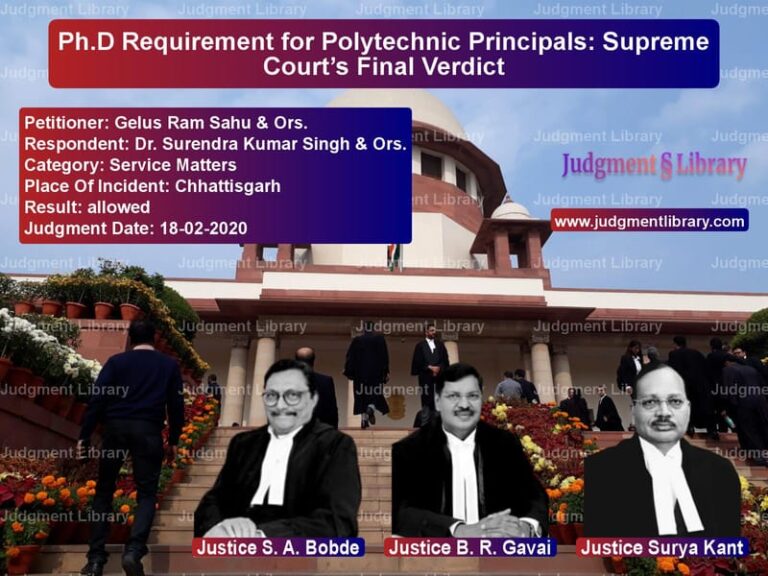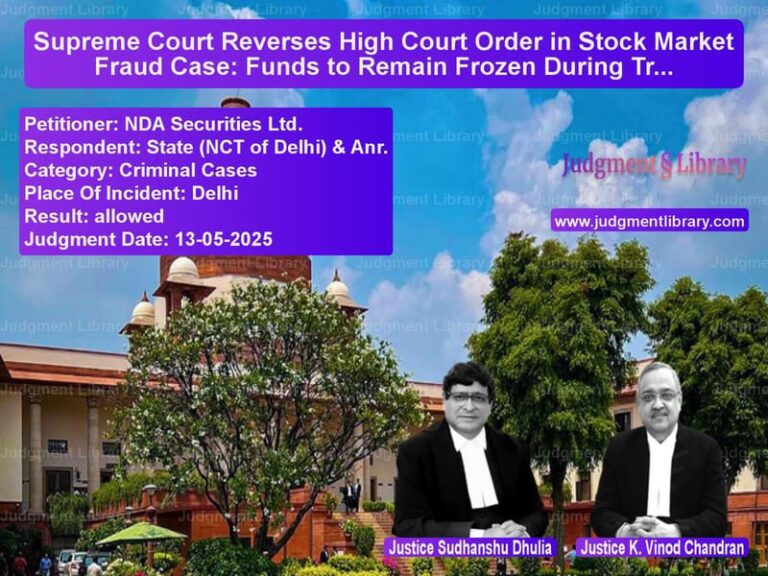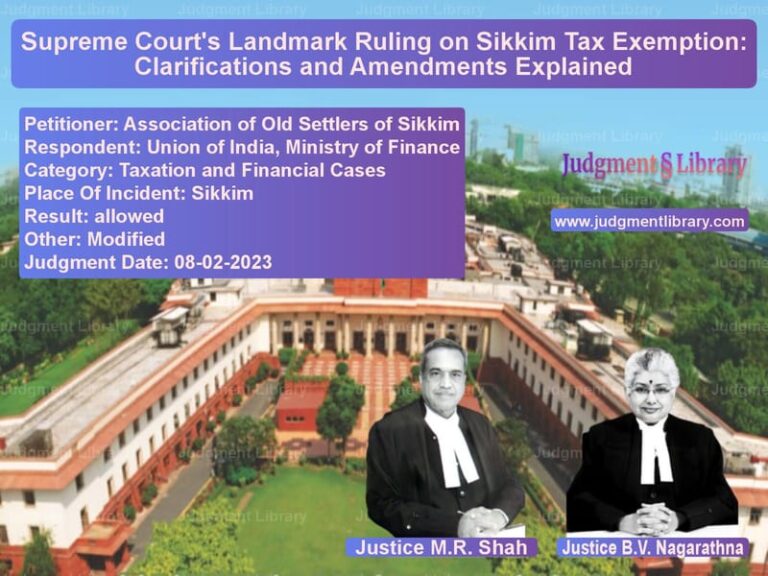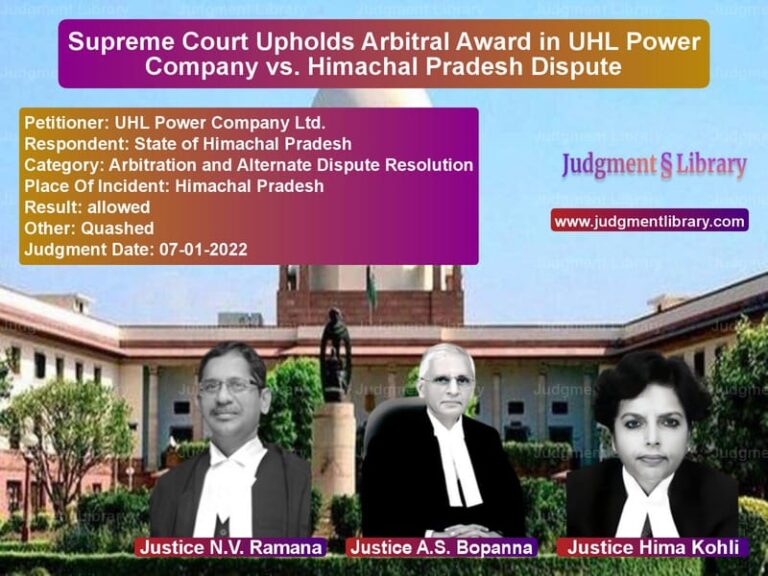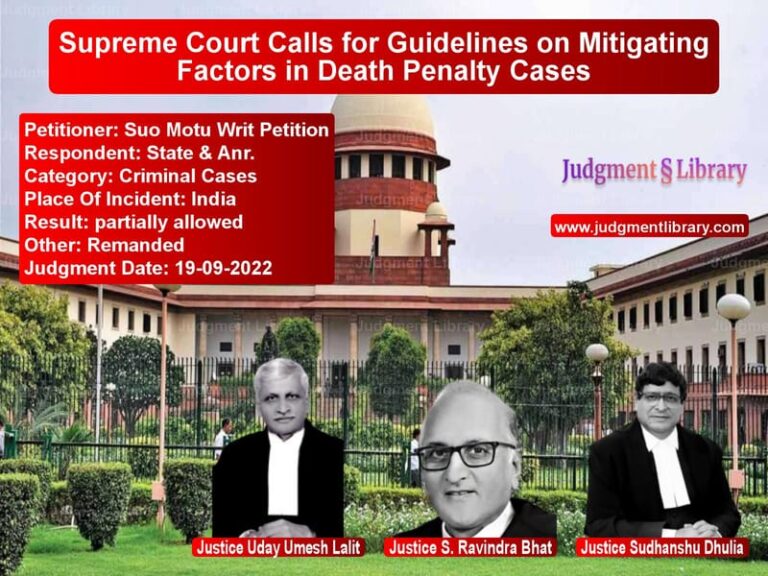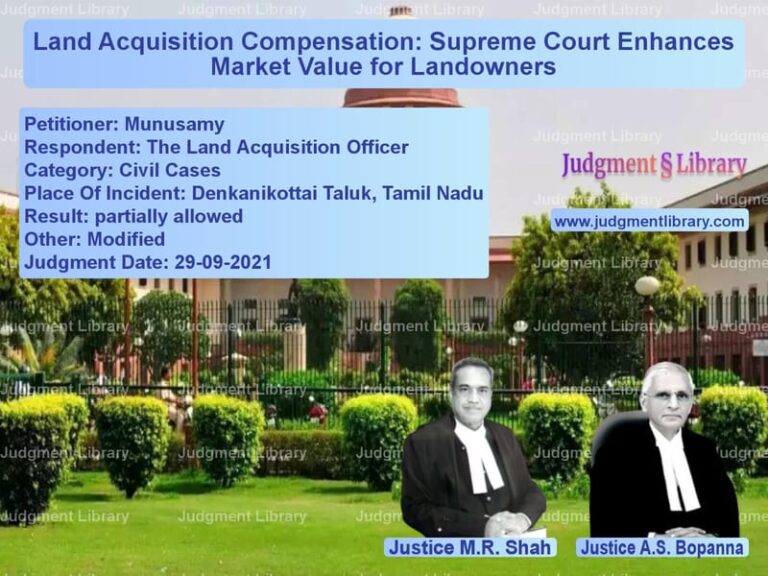State Bank of India vs. Jet Airways Resolution Plan: Supreme Court’s Ruling on Insolvency and Compliance
The recent judgment in the case of State Bank of India & Ors vs. The Consortium of Murari Lal Jalan & Florian Fritsch & Anr has brought into focus the intricacies of insolvency resolution under the Insolvency and Bankruptcy Code, 2016 (IBC). The case revolves around the implementation of the Resolution Plan for Jet Airways Limited and the disputes regarding the compliance of conditions set within the plan.
Background of the Case
The appeal arose from multiple orders of the National Company Law Appellate Tribunal (NCLAT). A Resolution Plan was submitted by the consortium led by Murari Lal Jalan and Florian Fritsch in an attempt to revive Jet Airways, a debt-laden airline. The plan was approved by the Committee of Creditors (CoC) on 17 October 2020, and subsequently received approval from the National Company Law Tribunal (NCLT) on 22 June 2021.
The plan had specific conditions precedent, which required completion within 270 days from the approval date. These conditions included:
- Validation of the Airline Operator Permit (AOP) by the Director General of Civil Aviation (DGCA) and the Ministry of Civil Aviation (MoCA).
- Approval of the business plan by the DGCA and MoCA.
- Reinstatement of aircraft slots and international traffic rights to Jet Airways.
- Approval of the demerger of the ground handling business into a separate entity.
If these conditions were not met within 270 days, the resolution plan would be automatically withdrawn, and control of Jet Airways would return to the CoC.
Dispute Between Lenders and Resolution Applicant
The State Bank of India (SBI), representing the lenders, contested that these conditions had not been fulfilled. The Successful Resolution Applicant (SRA), on the other hand, claimed full compliance. The DGCA reissued Jet Airways’ Air Operation Certificate (AOC) on 20 May 2022, prompting the SRA to propose this date as the official effective date of implementation.
However, the lenders argued that several conditions, including employee payments and financial commitments, remained unfulfilled. The matter was taken to the NCLT, which ruled in favor of the SRA, stating that the conditions precedent were met.
Appeal to the NCLAT
The SBI challenged the NCLT order before the NCLAT. Meanwhile, an implementation extension was sought by the SRA, which the NCLAT granted. The lenders opposed this, arguing that the SRA had failed to deposit the required funds. As a resolution, the lenders proposed that if the SRA:
- Infuses Rs. 350 crore by 31 August 2023.
- Adheres strictly to the resolution plan.
- Pays dues to employees as per the NCLAT order of 21 October 2022.
Then, they would not oppose the extension or further implementation of the plan. However, the SRA requested an alternative payment structure:
- Rs. 100 crore by 31 August 2023.
- Rs. 100 crore by 30 September 2023.
- Rs. 150 crore through the adjustment of a Performance Bank Guarantee (PBG).
The NCLAT permitted this adjustment, which led the lenders to file an appeal before the Supreme Court.
Supreme Court’s Judgment
The Supreme Court, led by Chief Justice Dr. Dhananjaya Y Chandrachud, Justices J.B. Pardiwala, and Manoj Misra, reviewed the case and ruled in favor of the lenders. Key observations included:
- The SRA must comply fully with its obligations without substituting payments with PBG adjustments.
- The extension granted by NCLAT was improper and did not align with the resolution plan’s agreed-upon terms.
- The lenders had incurred excessive maintenance costs to keep Jet Airways’ assets viable.
The Court directed that:
- The SRA must deposit Rs. 150 crore by 31 January 2024 as per the original financial commitment.
- The PBG of Rs. 150 crore would remain in effect until a final decision was reached by NCLAT.
- NCLAT should expedite the resolution of the appeal by March 2024.
Impact of the Judgment
The ruling reinforces the strict adherence required for implementing resolution plans under the IBC. Key takeaways from the verdict include:
- Resolution applicants must follow financial commitments as per the resolution plan.
- Bank guarantees cannot be used as a substitute for actual cash infusion.
- Timely compliance is essential to avoid liquidation proceedings.
Conclusion
The Supreme Court’s ruling ensures that resolution plans under IBC are executed with financial discipline and accountability. While the lenders gain assurance that commitments must be honored in cash rather than bank guarantees, the decision also provides the SRA an opportunity to comply and avoid liquidation. The outcome of the pending appeal before NCLAT will determine the future of Jet Airways’ revival efforts.
Petitioner Name: State Bank of India and Others.Respondent Name: The Consortium of Murari Lal Jalan and Florian Fritsch and Another.Judgment By: Justice Dhananjaya Y Chandrachud, Justice J.B. Pardiwala, Justice Manoj Misra.Place Of Incident: India.Judgment Date: 18-01-2024.
Don’t miss out on the full details! Download the complete judgment in PDF format below and gain valuable insights instantly!
Download Judgment: state-bank-of-india-vs-the-consortium-of-mu-supreme-court-of-india-judgment-dated-18-01-2024.pdf
Directly Download Judgment: Directly download this Judgment
See all petitions in Bankruptcy and Insolvency
See all petitions in Corporate Governance
See all petitions in Company Law
See all petitions in Shareholder Disputes
See all petitions in unfair trade practices
See all petitions in Judgment by Dhananjaya Y Chandrachud
See all petitions in Judgment by J.B. Pardiwala
See all petitions in Judgment by Manoj Misra
See all petitions in partially allowed
See all petitions in Modified
See all petitions in supreme court of India judgments January 2024
See all petitions in 2024 judgments
See all posts in Corporate and Commercial Cases Category
See all allowed petitions in Corporate and Commercial Cases Category
See all Dismissed petitions in Corporate and Commercial Cases Category
See all partially allowed petitions in Corporate and Commercial Cases Category


